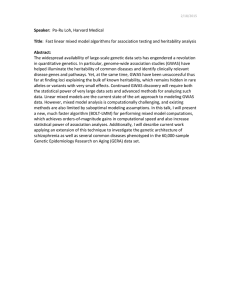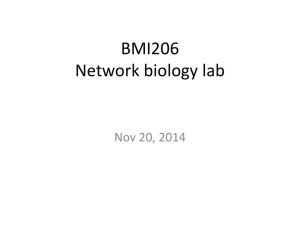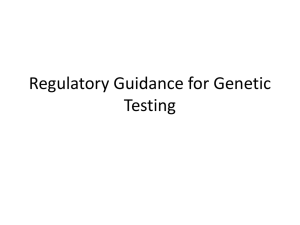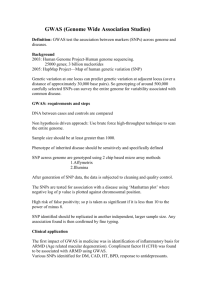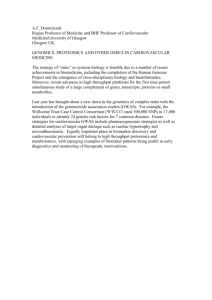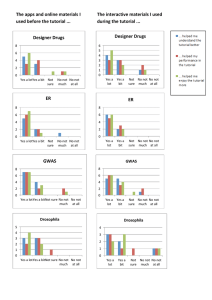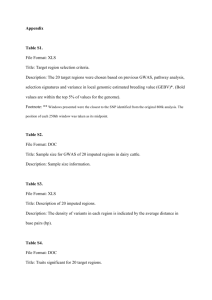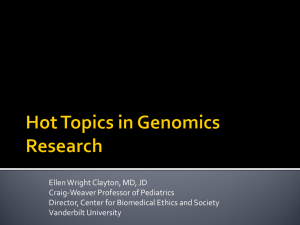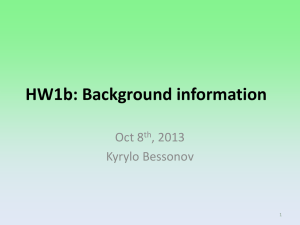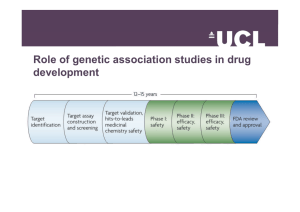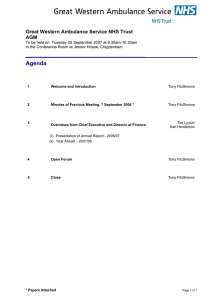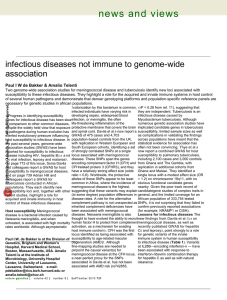Project descriptions
advertisement
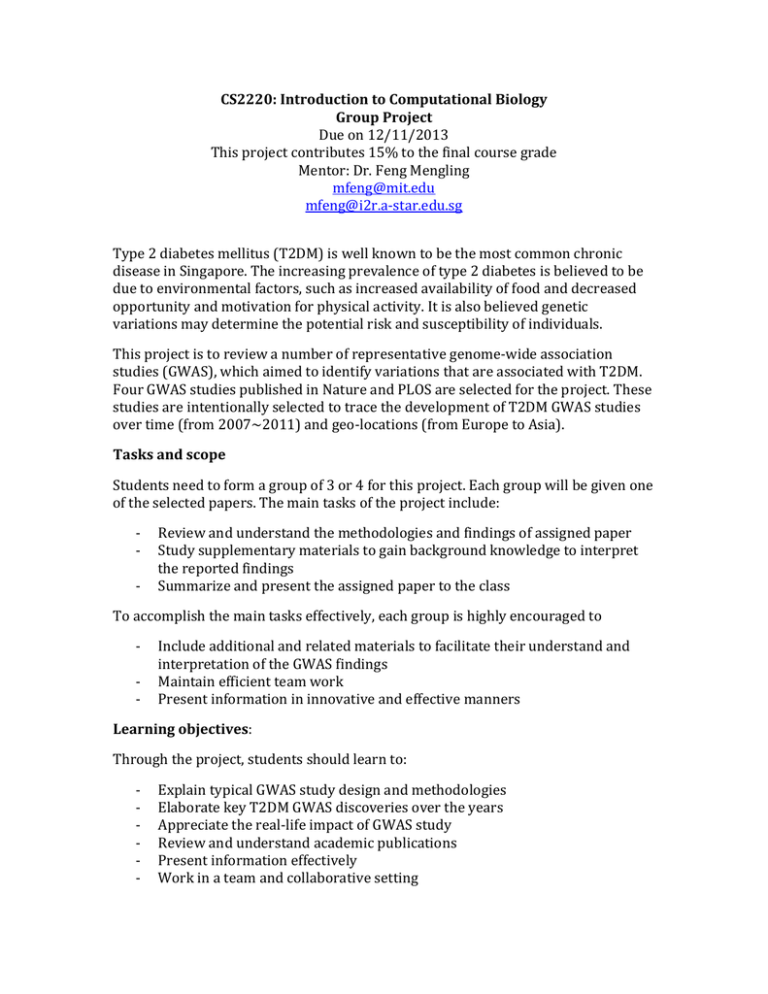
CS2220: Introduction to Computational Biology Group Project Due on 12/11/2013 This project contributes 15% to the final course grade Mentor: Dr. Feng Mengling mfeng@mit.edu mfeng@i2r.a-star.edu.sg Type 2 diabetes mellitus (T2DM) is well known to be the most common chronic disease in Singapore. The increasing prevalence of type 2 diabetes is believed to be due to environmental factors, such as increased availability of food and decreased opportunity and motivation for physical activity. It is also believed genetic variations may determine the potential risk and susceptibility of individuals. This project is to review a number of representative genome-wide association studies (GWAS), which aimed to identify variations that are associated with T2DM. Four GWAS studies published in Nature and PLOS are selected for the project. These studies are intentionally selected to trace the development of T2DM GWAS studies over time (from 2007~2011) and geo-locations (from Europe to Asia). Tasks and scope Students need to form a group of 3 or 4 for this project. Each group will be given one of the selected papers. The main tasks of the project include: - Review and understand the methodologies and findings of assigned paper Study supplementary materials to gain background knowledge to interpret the reported findings Summarize and present the assigned paper to the class To accomplish the main tasks effectively, each group is highly encouraged to - Include additional and related materials to facilitate their understand and interpretation of the GWAS findings Maintain efficient team work Present information in innovative and effective manners Learning objectives: Through the project, students should learn to: - Explain typical GWAS study design and methodologies Elaborate key T2DM GWAS discoveries over the years Appreciate the real-life impact of GWAS study Review and understand academic publications Present information effectively Work in a team and collaborative setting Assessment: Team assessment: - Information included in the final presentation Effectiveness and clarity of the final presentation Question and answers after presentation Individual Assessment: - Each student will be asked to rate his/her team members (teams are encourage to discuss the member rating and reach to some consensus) Schedule: Week 7: Team formation & briefing Week 8: Questions and discussions Week 9~12: Consultation and rehearsal session Week 13: Presentation and evaluation
